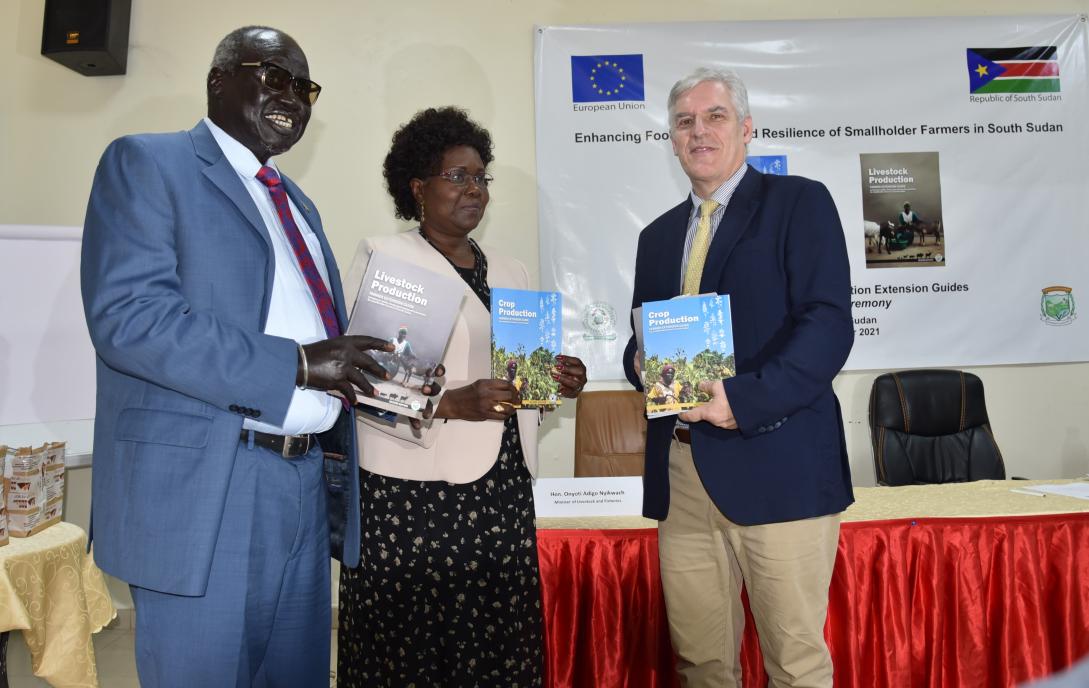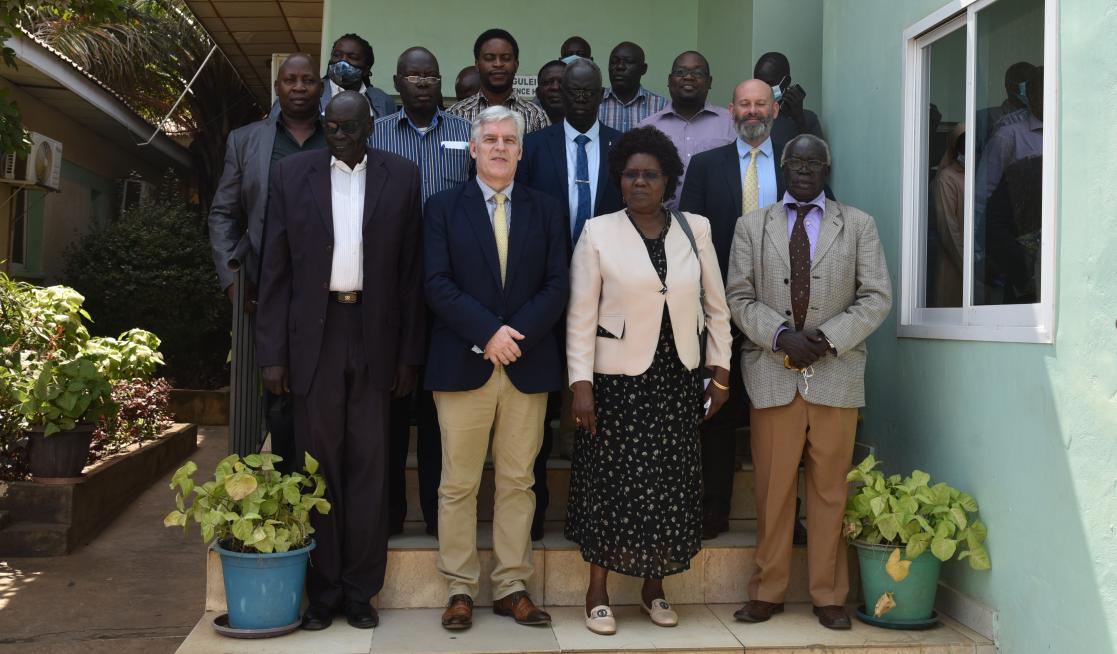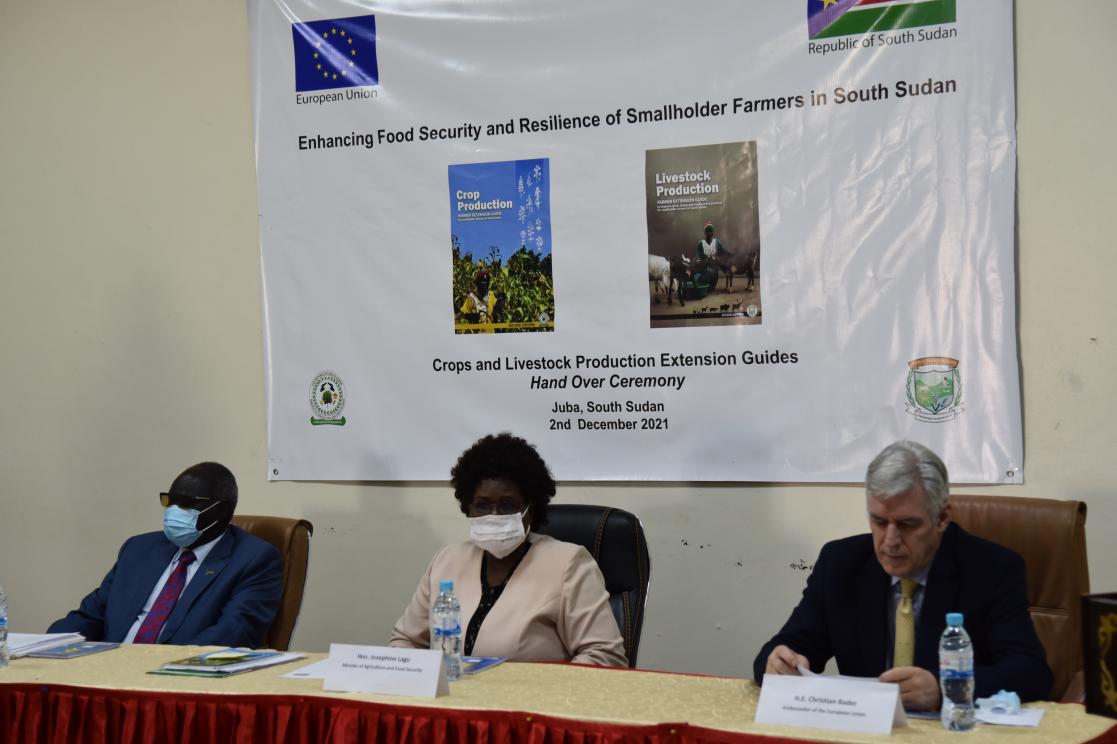EU hands over Crop, Livestock Production Guides to South Sudan Gov’t

The European Union Delegation to South Sudan on Thursday morning handed over Crop and Livestock Production Guides to the government of South Sudan.
National Ministers of Agriculture and Food Security, and Livestock and Fisheries Josephine Lagu and Adigo Onyoti respectively received the two documents from the European Union Ambassador to South Sudan, Christian Bader, at a ceremony in Juba.
Making remarks at the event, Ambassador Bader said South Sudan should not rely on oil production but rather livestock and agriculture because the conducive factors for them are readily available.

“The future of this country lies in its people and the land. Land is plenty. The other resource is water. Therefore, crop and livestock production will be the future of this country if we are able to improve production and productivity and build infrastructure like roads,” Bader said.
“South Sudan will not only be able to be food self-reliant but also be able to produce surplus for neighbouring markets. Only one state was able to produce enough for its population. That was Western Equatoria but not anymore because of conflict.”
The ambassador also made fervent appeal to the peace parties to give peace a chance, which he said, would greatly improve the agricultural potential of the country.
“I must stress that foremost ongoing conflicts are preventing structural development of the huge potential for agriculture in South Sudan. All stakeholders concerned must address this. The EU integrates systematically support to conflict reduction mechanisms (community dialogues and others) in its programs on agriculture. However, the main responsibility lies with the South Sudanese stakeholders themselves,” he said.
Minister Adigo concurred with the European diplomat, saying that South Sudan has numerous potential to not only eliminate hunger and food insecurity but also to play a role in the regional food market.

On her part, Ms Lagu lauded the EU and its partners for the production of the guides but urged for their translation into other main languages of the country.
“We cannot do much without reaching out to the farmers and the only way we can reach out to them is through extension services. These guides are important tools for the two ministries to deliver their mandates,” she said. “In a few years, we don’t want to remain dependent on others. Let us produce what we eat instead of depending on others because we have the resources required. Yes, we can.”
The Acting UN Humanitarian Coordinator in South Sudan, Matthew Hollingworth, also welcomed the launch of the Crop and Livestock Production guides which he said would be reference books for all development partners.
The Rural Development Programme (with investments in infrastructures, agriculture, livelihoods and resilience) remains the EU’s biggest investment in South Sudan, accounting for 52% of the total funding in the country.
These extension guides re-affirm EU’s continued commitment to enhance the capacity of key line Ministries enabling them to deliver on their mandates.






